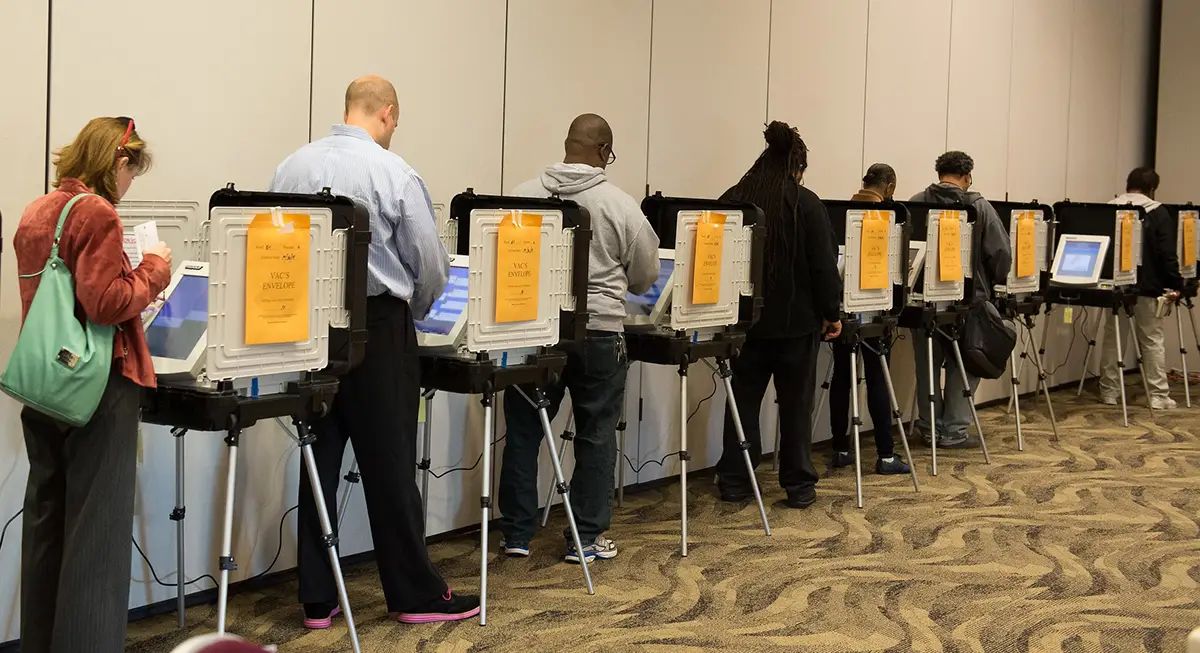By Chris Holden on October 19th, 2022

When renters are turned out of their homes through eviction, there are a lot of things more important to worry about than registering to vote. But when low-income communities face high eviction rates, research shows that it can impact turnout in elections.
Researchers at Princeton University’s Eviction Lab found that eviction plays a powerful role in depressing community voter turnout. They merged the Eviction Lab’s database of court-ordered evictions around the country from 2013-2015, and voter file data on turnout during the 2016 presidential election.
The researchers found that higher eviction rates depressed voter turnout in both urban and rural communities during the 2016 election. However, eviction had a stronger impact on some communities over others.
Evictions had a more negative impact on voter turnout in states with new restrictions to voting and uncompetitive races. Eviction had a weaker effect on voter turnout in places that have measures that make it easier to vote. This includes mail-in balloting. It also includes allowing registration and voting on the same day or on Election Day.
The study also shows that high eviction rates have a stronger impact on voter participation than eviction filing rates. This means that actually losing one’s home, not just the threat of eviction, has the greatest effect on voting.
Filing rates describe how many households receive an eviction notice. Eviction rates describe court-ordered moves where families are actually displaced.
When renters are displaced through eviction, they have many immediate critical needs. They need to find shelter, food, and transportation to work. They need to get kids registered in new schools.
The registration process to vote also makes it hard for displaced renters. It is hard to register to vote in many places if you do not have a fixed address, like living in a homeless shelter. Many places increased the use of mail-in ballots during the pandemic, but are rolling back or restricting the option to vote by mail. It can be hard to find polling places in a new community. When a family has just lost their home, these challenges can be too much.
The Eviction Lab determined that a 1% drop in the eviction rate translates into a 2.7% increase in voter turnout. Six states were decided by less than 2% in the 2016 presidential election. Some of these were key states in the election, including Michigan, Pennsylvania, and Florida.
This research shows that renters do not have to lose their ability to vote just because they have lost their homes to eviction. When states make it easier to vote, displaced renters can still have a voice.
Do you have little or no income?
You can qualify for most rental assistance programs, including Section 8 and Public Housing, even if you have little or no income.Rose Carr says:
"Affordable Housing Online is a great resource to finding Section 8 waitlists that are open!"